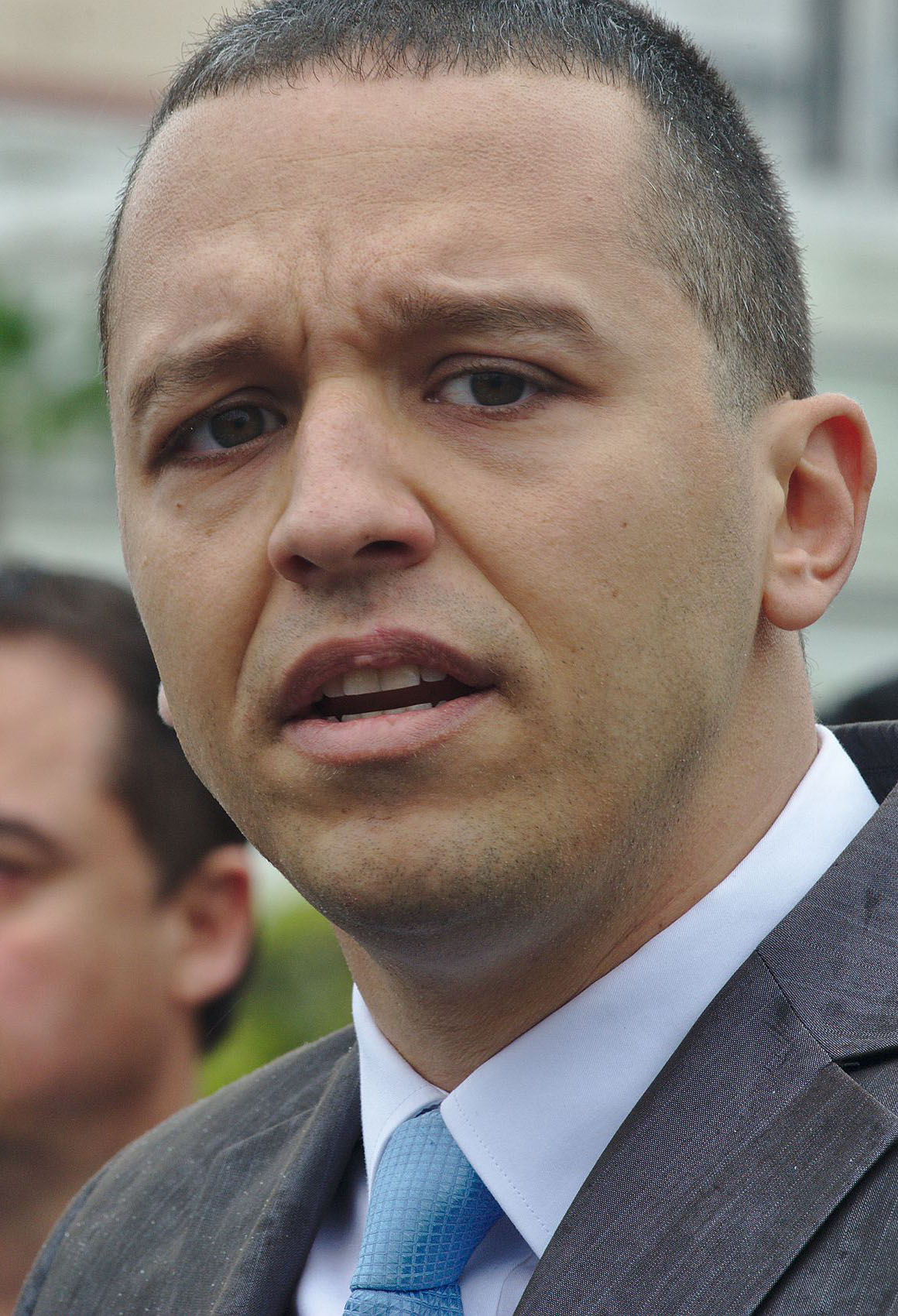
Ilias Kasidiaris Credit DTRocks
The failure of neo-nazi Golden Dawn to pass the electoral threshold of 3% in the 2019 Greek general election, along with the disintegration of its organisational network and the conviction of its leadership in October 2020 on charges of forming a criminal organisation at the end of a five-year long trial, gave the impression that the political and electoral appeal of this particular form of neo-fascism had started to recede.
However, this did not mark the end of the electoral presence of the far right in Greece. Far-right Greek Solution, led by Kyriakos Velopoulos, did manage to enter Parliament in 2019. But, above all, there were signs that, despite the impressive anti-fascist mobilisation that coincided with the end of the Golden Dawn trial, the far right maintained a political dynamic.
The Greek government’s answer to this challenge on the eve of the 2023 general election was to find ways to prevent any party directly or indirectly controlled by persons convicted on charges, such as those of which the Golden Dawn leadership had been accused, of contesting the election.
The main concern was that Ilias Kasidiaris, who was convicted and jailed for his involvement in running a criminal organisation, namely Golden Dawn, would try to either set up a political party under his own leadership, or form one that he controlled, but without necessarily direct participation. In contrast to other leaders of Golden Dawn, even as he sat behind bars, Kasidiaris continued to maintain a political presence, mainly through speeches made in prison that were broadcast on YouTube.
The Greek government’s legislative initiative prohibited the participation of Kasidiaris’s own new party, called The Greeks and formed in 2020, in elections. However, for the elections that took place in May and June 2023, it became evident that Kasidiaris had a ‘plan B’. He announced his support for a small and, until then, unknown party called the Spartans, made up of individuals from the far right, but without any leading members of Golden Dawn. The party was small and did not really wage any campaign, but the call by Kasidiaris was widely reproduced in various far-right social media and Telegram channels.
As a result of his call to support the Spartans, the party managed to obtain an impressive 4.68% of the national vote and elected 12 members of Parliament, the highest proportion of the vote for far-right parties.
This was a harsh reminder that a significant segment of the electorate was looking for a party such as Golden Dawn or similar, and that it views Kasidiaris as a political leader, to the extent it would follow his electoral recommendation. This points to the continuous appeal of this particular version of neo-fascist politics in Greece. What is also important – and worrying – is that the 25 June election saw an increase in broader support for the far right.
This included Velopoulos’s Greek Solution party, which survived the pressures from the other far-right parties, coming just behind the Spartans with 4.4% of the vote. In addition, a new party, Nike (Victory), which represents a version of the religious far right with strong connections to particular ultra-conservative segments of the Orthodox Church, managed to gain 3.7% and elect 10 members of Parliament.
As a result, the 25 June election saw a combined share of the vote for the far right of 12.8%. The three parties have their differences, but they nevertheless share the same ultra-nationalist, authoritarian and racist-xenophobic outlook.
Neo-liberal
There is still open debate on the reasons for this resurgence of the far right. But we can point in a number of directions.
One significant factor was a broader right-wing shift in terms of both the political debate and forms of governance. The governing New Democracy party, under Prime Minister Kyriakos Mitsotakis, has opted for a cynical combination of aggressive neo-liberal reforms, taking a very authoritarian stance and adopting anti-immigrant and anti-refugee policies that have made this aspect of far-right politics part of the political mainstream.
Moreover, the defeat over the previous decade of the mass movements that campaigned against European Union-dictated austerity, which took the form of a supposedly left government implementing austerity politics, created a broad sense of disillusionment, but also disorientation among the popular classes in Greek society during this period.
The inability of the left to deal with some of the consequences of the pandemic measures gave space to conspiracy theories that helped to increase the appeal of the far right. Above all, it became obvious that the left had failed to take a leading role in countering the right-wing rhetoric that would have prevented the shift of some segments of the population to the far right.
And, as we painfully realised in the 2010s, the far right is not simply an electoral dynamic, it is also responsible for concrete forms of violence. Despite the fact that there has not been a resurgence of an organisational apparatus such as that of Golden Dawn, there has been a return of far-right violence. The most recent examples were the vigilante patrols that went out to capture ‘illegal migrants’ in Thrace near the Greek-Turkish border, co-ordinated by local far-right activists, including a Greek Solution member of Parliament.
Kasidiaris is currently running for mayor of Athens. His conviction means that he will be prohibited from assuming office if elected, but the law does not prohibit him standing. This poses a big challenge for the anti-fascist movement. One important development is that the broader radical, anti-capitalist left has agreed on the candidacy of Kostas Papadakis, one of the lawyers who represented victims in the Golden Dawn trial.
Panagiotis Sotiris is a journalist working in Athens
This article was first published in the Autumn issue of Searchlight magazine
